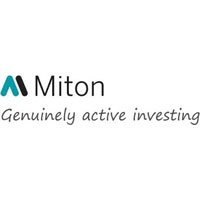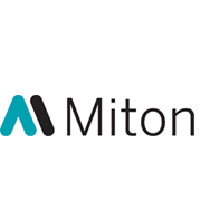Miton Group (LON:MGR) Senior Executive Director and Fund Manager Gervais Williams caught up with DirectorsTalk for an exclusive interview to discuss a change in market trends, micro caps, share balance sheets and China.
Q1: Gervais, I wanted to start by talking about market trends, do you think that they’ve changed much recently?
A1: Well, it is interesting. Generally, the market trends have been pretty good this year, a lot of stock markets around the world have risen and most mainstream indices have risen, the FTSE100 is up.
What’s been interesting is actually the smaller end, the UK stocks have been less buoyant and particularly, the very smallest companies, some of the micro caps, in general have actually fallen this year at a time when the main markets have been rising.
Q2: So, do you think that the micro caps, they’re underrated?
A2: Certainly, in terms of valuations, you might argue that the whole of the UK is a little bit underrated, generally international investors’ worries about how Brexit will turn out, general worries about potential change of government, are affecting interest in the UK. So, I would argue that most UK equities are less highly valued than most of the other companies around the world.
In the UK specifically, I would argue that many of the smallest companies, particularly microcaps, are standing on unusually low valuations compared with the mainstream companies and indeed, long-term history.
Q3: Balance sheets, why is it that you believe share balance sheets are so important at the moment?
A3: I think they were always important but at times when bank borrowing is easy and interest rates are falling, if you get caught out with insufficient headroom on your borrowing, many companies can still get through by perhaps borrowing a bit more or by finding a way to make ends meet.
When liquidity is tight, maybe when increasing anxieties out there, maybe a setback, or a geopolitical event, if you then find that you’re caught out because your operations have a downturn, if you’re overborrowed at that stage, it’s very difficult to make ends meet.
What normally happens is the share prices fall hard and you hope to get an emergency rights issue done and that can be very dilutive for existing shareholders and unwelcome as they don’t always want to be writing a cheque at a time when the markets collapsing.
Most particularly, there’s also risk that you actually go bust and the thing that I worry about when you hold companies which go out of business isn’t just that you lose a lot of your client’s money, they go down to 0 in most cases, but most particularly there’s no recovery.
We have plenty of shares that we’ve held over the years where the share price went down before it went up, and that’s fine long-term, but if you hold a share which goes down and then you’re at the bottom because the company’s gone bust, there’s no recovery potential at all. That of course is a complete dead loss.
Q4: Do what extent is slowdown in China affecting the trends in the small caps, do you think?
A4: They’re obviously a long way apart, there aren’t very many companies in the UK which operate directly in China and so, the links are a little tenuous.
On the other hand, world growth has largely been driven by Chinese growth over the last 10 years and over the last couple of year, Chinese growth has been more moderate and certainly, on the manufacturing side, if anything, it looks like we’ve entered a global manufacturing recession. So, that’s definitely affecting trading conditions in certain areas, particularly some of the manufacturing areas.
There’s a build-up in stock, generally the inventory levels are pretty high, not so much just in China but around the world, and so there’s a real worry that they’ll be margin pressure and less growth coming through.
That kind of affects really the whole climate for equities, most people invest in stocks because they hope the world will grow and the companies will grow. If we’ve got very little growth, it’s harder to grow then it makes it harder for all companies to generate increased profits and dividends over the long-term.
Miton Group are a UK fund management group that believes in the value of genuinely active management. They offer high conviction, actively managed equity strategies that seek to deliver strong long-term investment performance. They offer multi-asset strategies that seek to deliver a predictable outcome.






